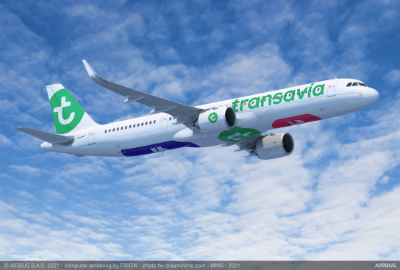Airbus to test hydrogen-powered engines – take-off in 2035
Airbus is taking steps to make large hydrogen-powered flying take off in 2035. The aircraft manufacturer is planning to test hydrogen-powered engines for its A380 superjumbo.
Airbus recently announcing its plans to test hydrogen-powered jet engines on its A380 superjumbo and bring it into service by 2035. According to a report by Airport Technology, hydrogen will play a crucial role in transforming a difficult to decarbonise sector such as aviation into a zero-carbon system in the coming few decades. “However,” Airport Technology reports, “Airbus still has a long road ahead despite these ambitious goals.”
The work that Airbus is doing to develop hydrogen-powered flying is carried out in cooperation with CFM International, a joint venture (JV) between GE and Safran Aircraft Engines.

Carbon-free production
Hydrogen has significant potential as it can be produced in a carbon-free way. When used as a fuel, only produces water, allowing for zero-emission transportation. It also has significant energy potential since it is much more energy-dense and considerably lighter than its main competitor, battery power.
But there are also great challenges. In the coming years, the expansion of hydrogen infrastructure will need to become a key priority for Airbus to commercialize a fleet of hydrogen-powered aircraft. The use of hydrogen as an aviation fuel will require a significant supply chain overhaul, requiring increased hydrogen production capacity and supply lines for its transport.
Building hydrogen hubs
Airport Technology reports that there is some progress in this area. “So far, in 2022, Airbus has agreed to undertake a feasibility study for establishing a hydrogen hub at Singapore’s Changi Airport (SIN) alongside the Civil Aviation Authority of Singapore and industrial gas company Linde. Airbus has also entered a memorandum of understanding (MoU) with SEA, the company that manages Milano Linate (LIN) and Milano Malpensa (MXP) airports, to study and execute projects for the distribution of hydrogen at Milan’s airports.”


